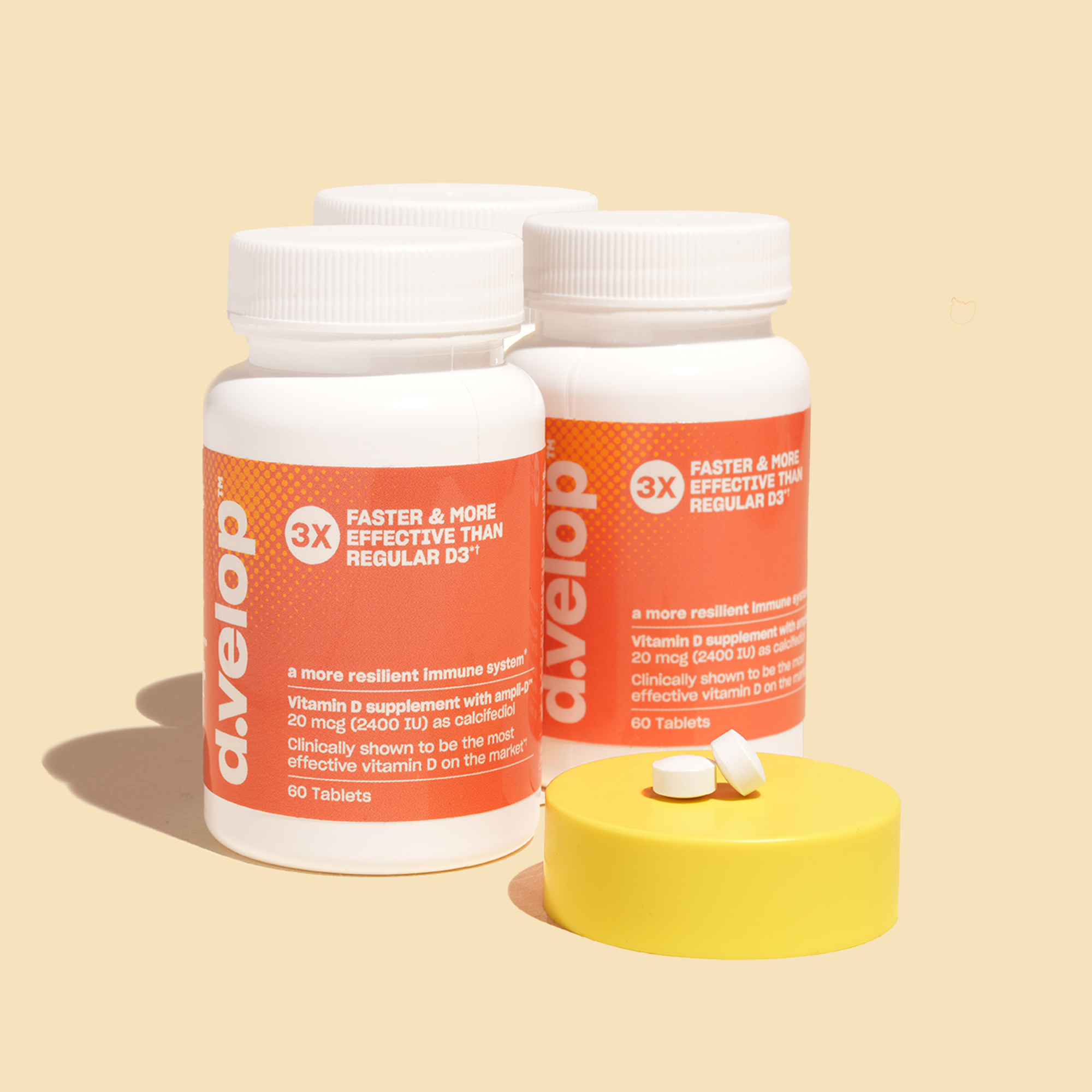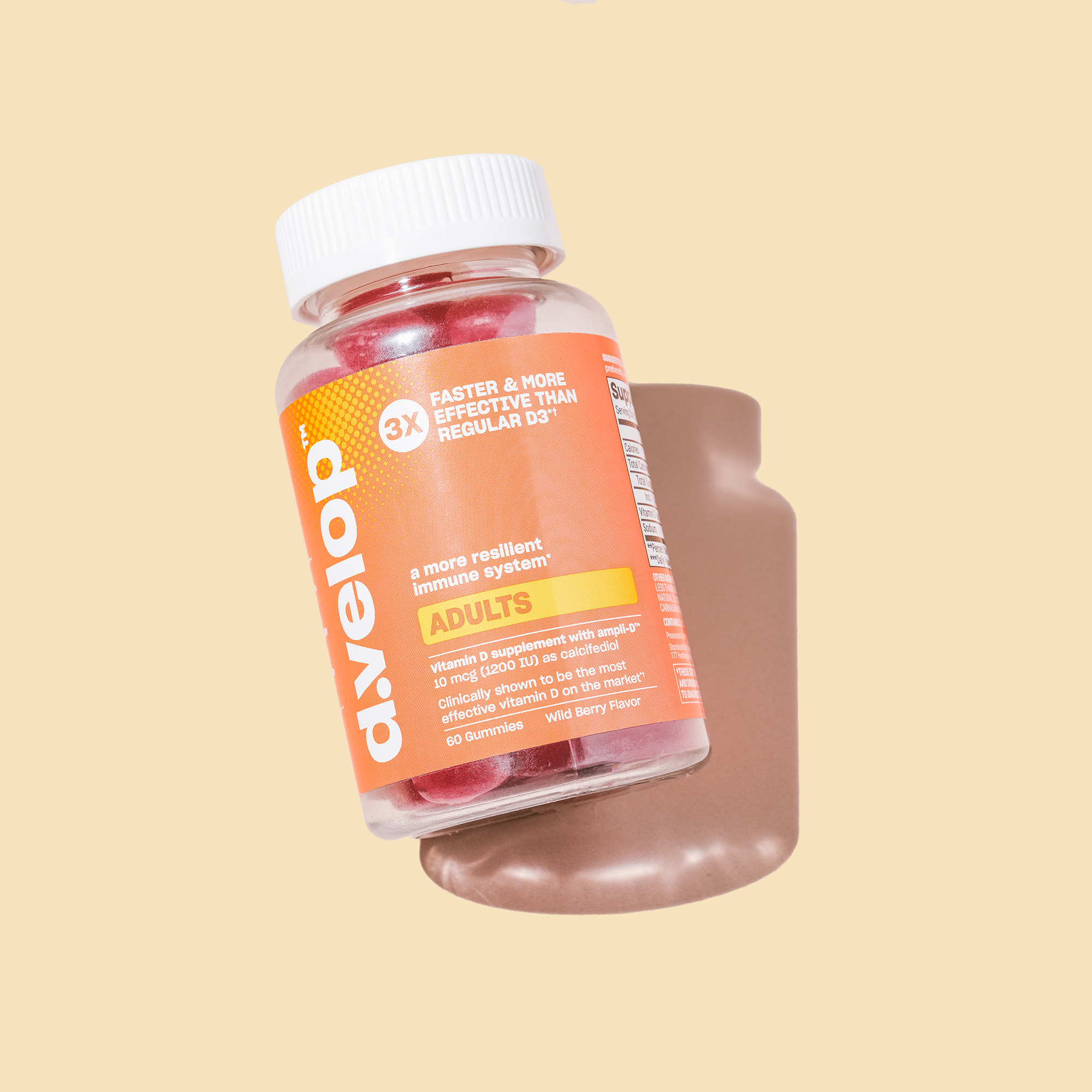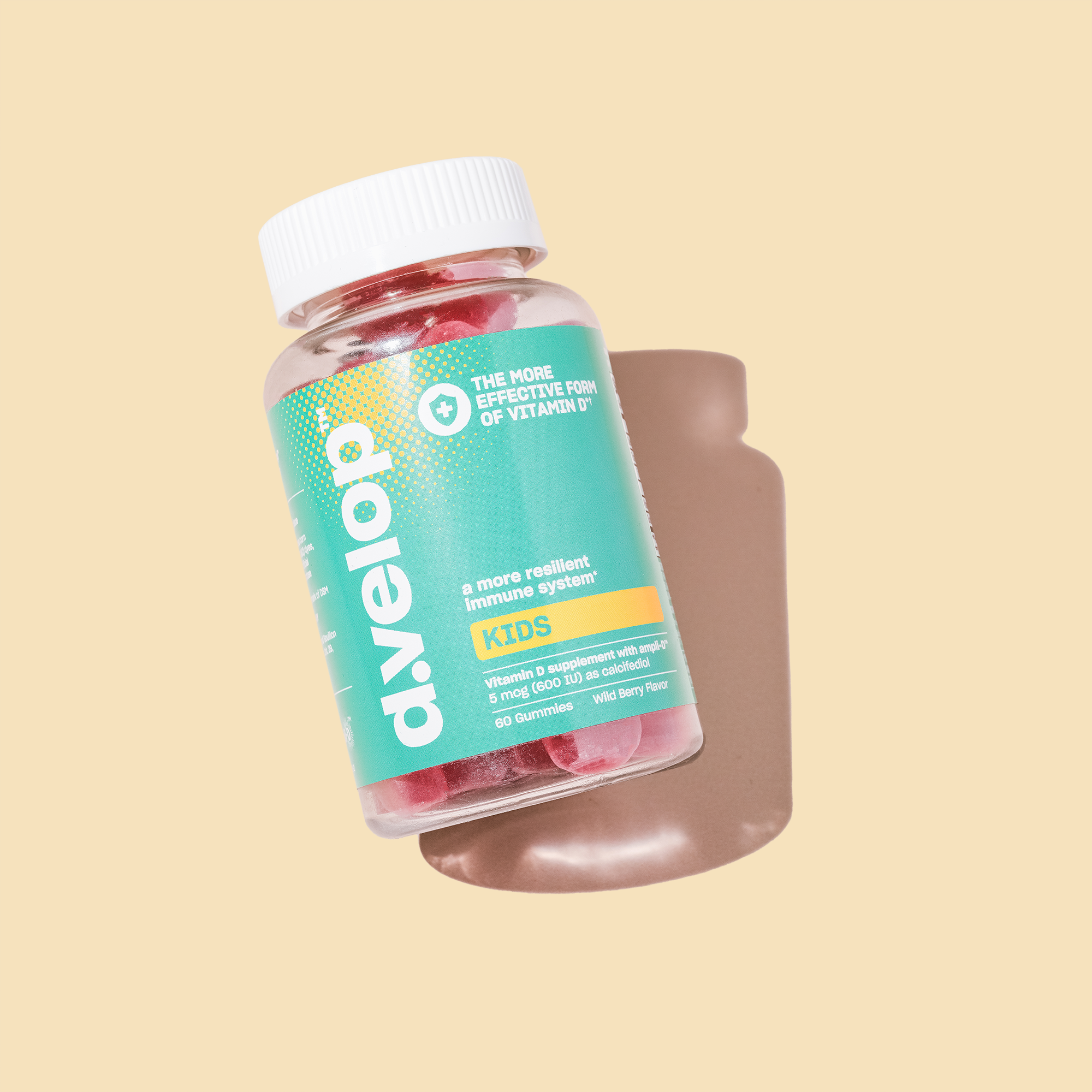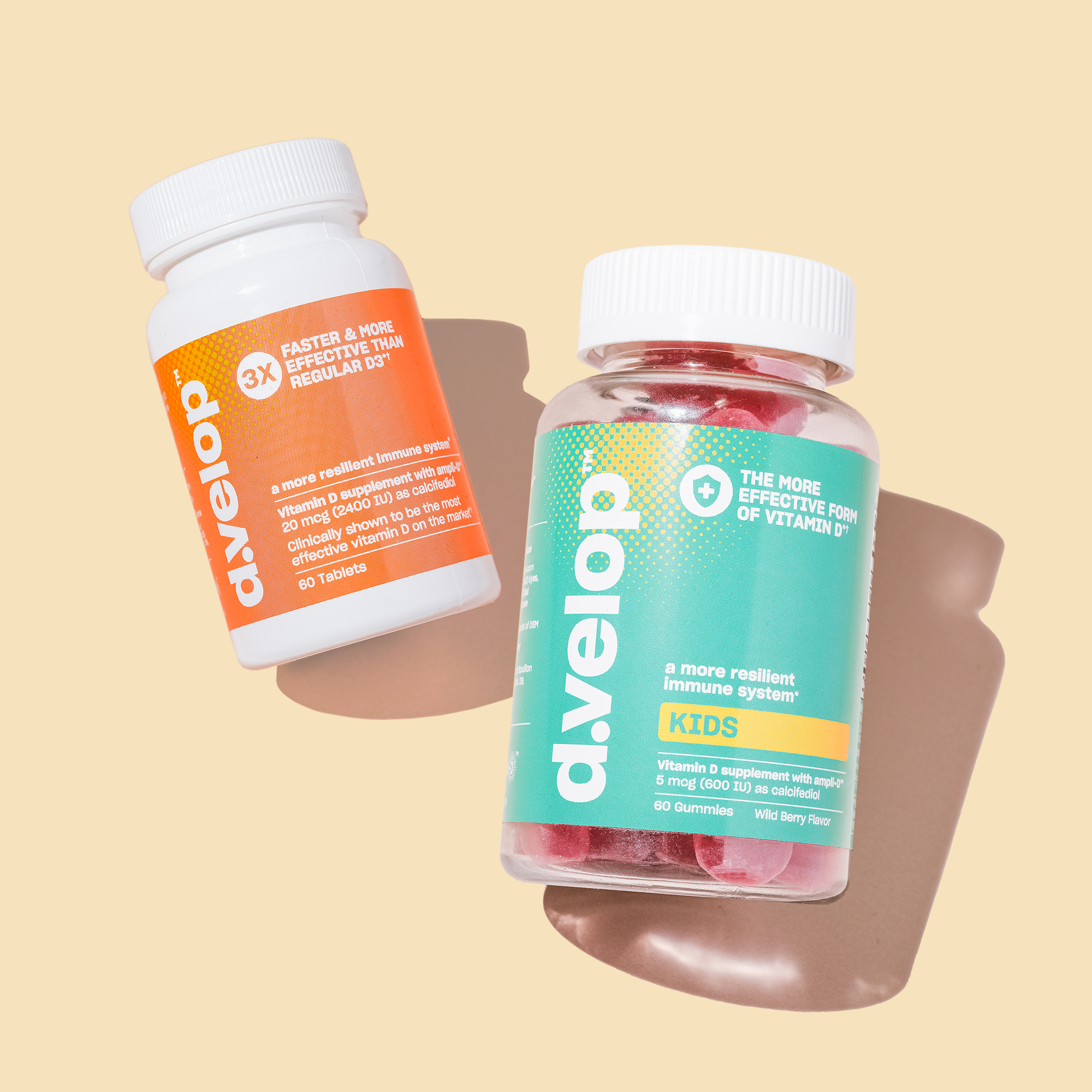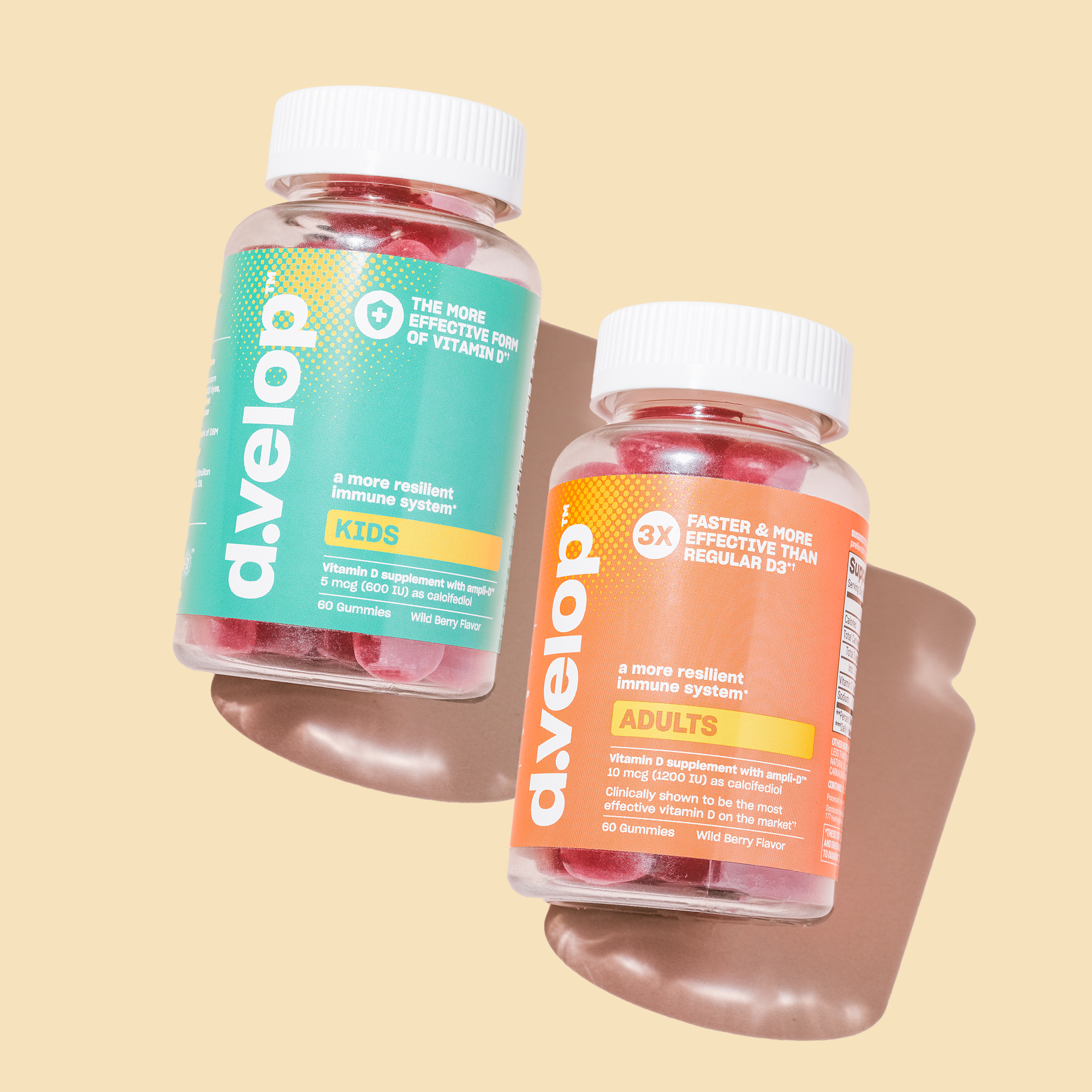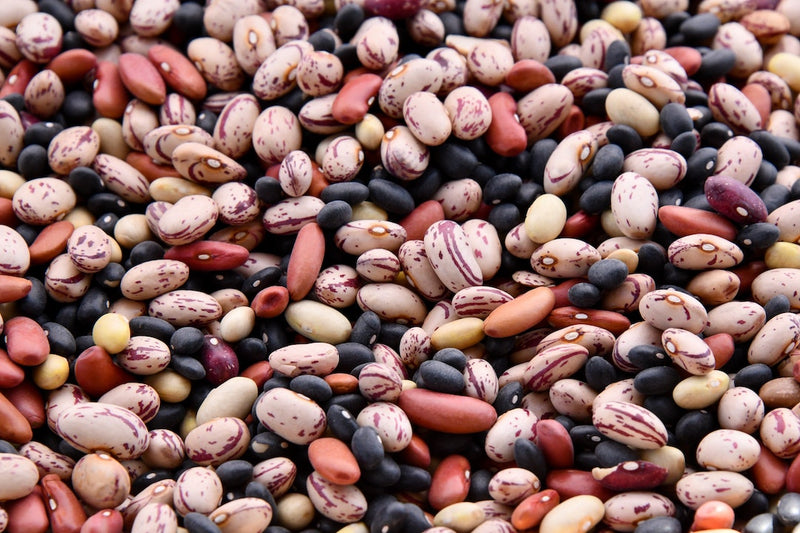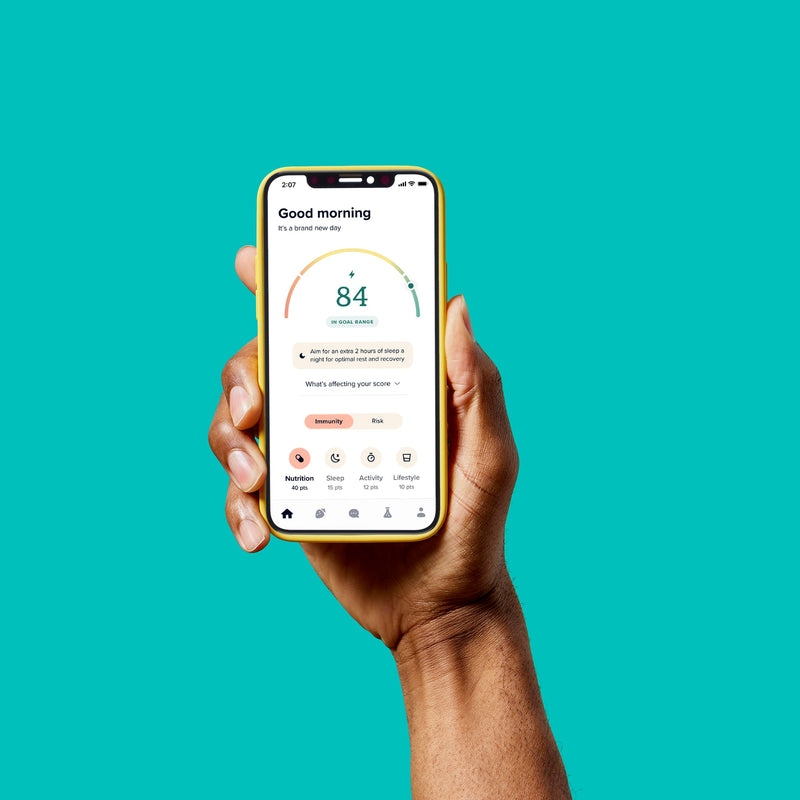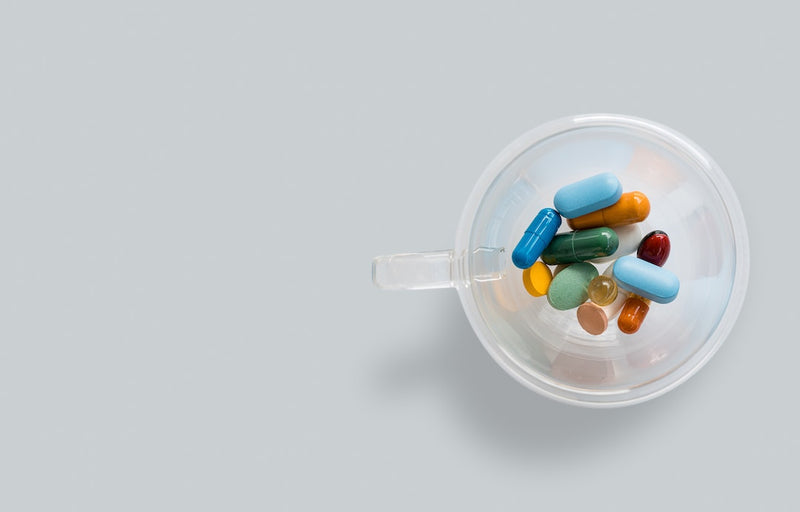The Effects of Vitamin D
Vitamin D is an essential nutrient that every person needs for immune health, healthy teeth and bones, as well as energy. It is especially important for children to get the proper amounts of vitamin D for their little bodies to grow, develop strong bones, and heal quickly.
Be sure to look for the signs of low vitamin D. Having a vitamin D deficiency can display itself in various forms. For some it may look like fatigue, depression, or weak muscles, while for others it may be an increase in bone pain and cramping in the body, especially the muscles. Sometimes a vitamin D deficiency doesn’t display itself with symptoms. However, if in doubt, we always recommend speaking with your child’s doctor if there is reason for concern.
How do you know if you have a vitamin D deficiency? We offer vitamin D test kits (18 y/o +) to check at home. The only way to truly know your vitamin D levels is by taking a vitamin D blood test.
The Best Sources of Vitamin D for Kids
There are lots of ways to incorporate vitamin D into yours and your family’s diet. However, if you’re looking for foods that pack a vitamin D punch, you’ll most likely find it in fatty fish (such as salmon, tuna, or mackerel), fortified dairy products, cheese and egg yolks. Other foods fortified with vitamin D (meaning that they have vitamin D added in), include: breakfast cereals, some orange juices, and yogurt.
The majority of the vitamin D we absorb in our body is through sunlight. However, depending on where you live, or the time of year it may still be challenging to get enough!
When it comes to boosting vitamin D for kids, a healthy, balanced diet and time outside may help their vitamin D levels.
If you’ve found that time spent outside has failed to help your child meet their adequate vitamin D levels, or if your child is a selective-eater, it may be time to consider some vitamin D supplements that will help them meet their daily needs for healthy growth and development.
For adults - Check out our immunity quiz to see how your lifestyle may be impacting your immune health, or take the vitamin D deficiency quiz to see how your diet and habits may affect your vitamin D levels.*
How Much Vitamin D is Safe for a Child?
The recommended intake is 600 IU of vitamin D for kids daily. Some children, however, may require more depending on their health conditions.
For those wondering if children can take supplements, the answer is yes! Kids can take vitamin D supplements! Just like adults often need a boost of vitamin D in their system, children may also need to up their intake based on their vitamin D levels. Many supplements are safe for children’s use, just be sure to check with your healthcare provider prior to starting any nutritional supplement and following instructions on the packaging. Numerous companies even offer specific vitamins for kids that measure the proper dosage for their age’s needs.
If you’re looking to boost both yours and your child’s intake of vitamin D, our Family Bundle subscription might be just what you need.
Get the Nutrients Your Child Needs
At the end of the day, we all want to do what is best for our children. Vitamin D is a great way to help support your child’s immune system and keep them healthy.* Looking for a way to boost vitamin D levels for your child? Get your child the best kids vitamin D gummies available. Try our vitamin D gummies today.
For more information about our brand and the science behind what we do, visit our About Us page.
References
- Weydert JA. Vitamin D in Children's Health. Children (Basel). 2014;1(2):208-226. Published 2014 Sep 12. doi:10.3390/children1020208 (Re: fatigue)
- Roy S, Sherman A, Monari-Sparks MJ, Schweiker O, Hunter K. Correction of Low Vitamin D Improves Fatigue: Effect of Correction of Low Vitamin D in Fatigue Study (EViDiF Study). N Am J Med Sci. 2014 Aug;6(8):396-402. doi: 10.4103/1947-2714.139291. PMID: 25210673; PMCID: PMC4158648. (Re: bone pain)
- Wu Z, Malihi Z, Stewart AW, Lawes CM, Scragg R. The association between vitamin D concentration and pain: a systematic review and meta-analysis. Public Health Nutr. 2018 Aug;21(11):2022-2037. doi: 10.1017/S1368980018000551. Epub 2018 Mar 21. PMID: 29559013.(Re: muscle pain)
- Tanner SB, Harwell SA. More than healthy bones: a review of vitamin D in muscle health. Ther Adv Musculoskelet Dis. 2015;7(4):152-159. doi:10.1177/1759720X15588521(Re: depression)
- Milaneschi, Y., Hoogendijk, W., Lips, P. et al. The association between low vitamin D and depressive disorders. Mol Psychiatry 19, 444–451 (2014). https://doi.org/10.1038/mp.2013.36
- Institute of Medicine, Food and Nutrition Board. Dietary Reference Intakes for Calcium and Vitamin D. Washington, DC: National Academy Press, 2010.
